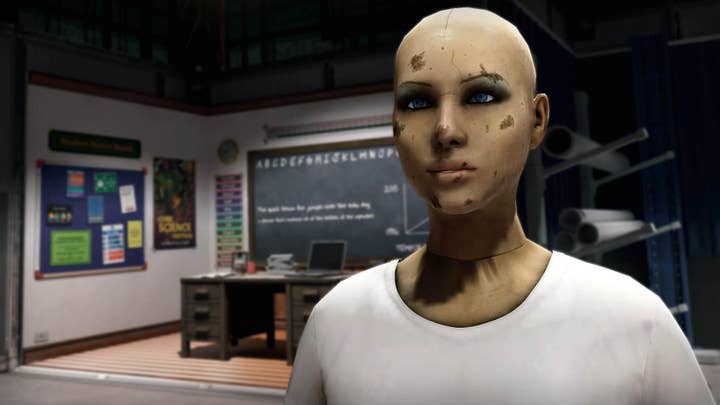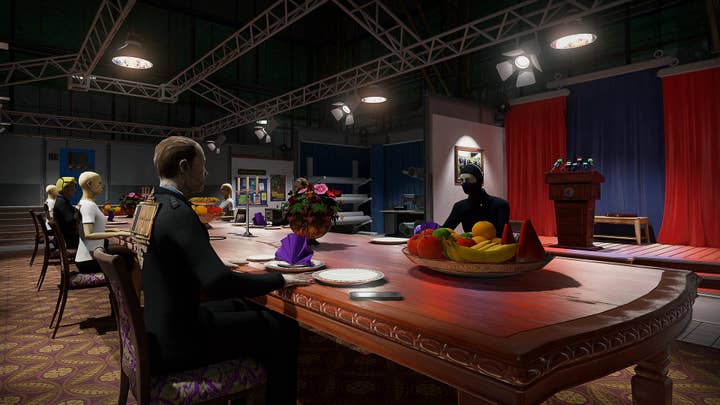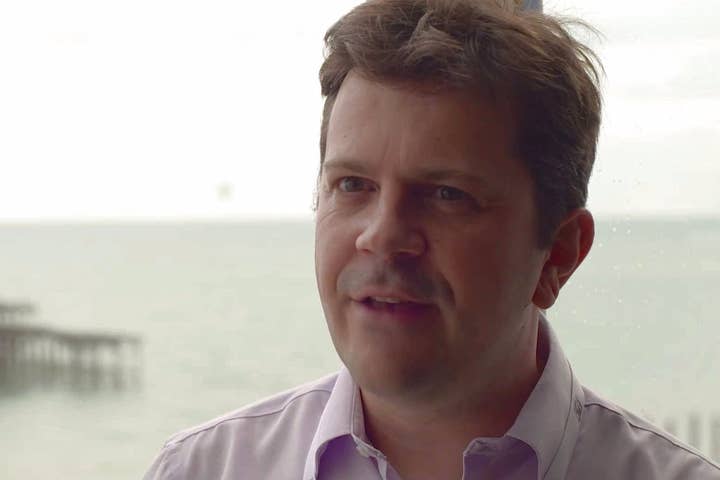nDreams: “We're not picking one. We're going with all of them”
Patrick O'Luanaigh on making safe bets in VR, and why developers should also be prepared to play the long game
After years of debate and speculation, the nascent virtual reality revolution is now agonisingly close to its start. Both Oculus Rift and PlayStation VR are hurtling towards a launch in the first quarter of 2016, while Valve and HTC will make their "limited" move with the Vive before the year is out - well. Depending on where your loyalties lie, that first taste of the future could be just a few weeks away. So why, then, do so many of the big questions remain unanswered?
As anyone who follows the games industry will no doubt remember, the launch prices of the Xbox One and the PlayStation were launched at the same gloriously entertaining E3. Both consoles were released in November, giving consumers five full months to save, earn, beg or borrow the money necessary to be among the early adopters. Even in a mature category like consoles, where prices fall within a relatively slim window even in a new generation, that five to six month buffer is important. It is something most consumers want, and a few actually need. It's good business.
"We're in a nice situation where if we can just sell to 5 per cent of people who buy VR headsets then we should be okay"
With the incoming VR headsets, consumers haven't yet been afforded that peace of mind. Oculus and HTC/Valve have announced the PC specifications recommended to operate their headsets, but neither has revealed what the headset will actually cost - though the Vive will likely cost more than the Rift. Sony has the luxury of a pre-existing addressable of 25 million PS4 owners, and yet it has issued little more than the friendly advice that PlayStation VR will be priced as a platform, not a peripheral.
From the perspective of the eager consumer the situation is far from ideal, and the fact that it is allowed to persist speaks to the way that Sony, HTC/Valve and Facebook/Oculus see the market developing. Unlike consoles, where the first year of sales can set the tone for years to come, the VR platform-holders are playing the long game, one that can't be usefully measured or predicted after six months. As companies with huge revenues and resources, they can afford to wait. The developers building their businesses around those platforms? Well, that's another matter.
nDreams, a British developer working with both mobile and high-end VR hardware, is one such business, and its CEO Patrick O'Luanaigh can offer only one assurance to any potential VR adopters. "In terms of games, nobody will be shocked," he says, straining his voice above the clamour of the EGX showfloor. "We're expecting to price our games at what you would expect for that sort of game on Steam, PlayStation or Xbox. You won't be shocked that games are suddenly much more expensive."

The pricing of the headsets is another matter, and the sort of detail he wouldn't reveal even if he knew. The cost of a PC capable of supporting the Rift or the Vive aside, he says, all three will be, "affordable, but in the same way as when you buy a half decent television. I don't think it will be crazy, but it also won't be £99. Maybe it will get there over time. Consoles are expensive at the start and then they come down. And look at the price of an iPhone without a contract."
For O'Luanaigh, this is not idle speculation. nDreams was among the first established studios to reorganise around VR development, and its first-person adventure game, The Assembly, is one of the more promising titles coming to any of the new platforms. Even if O'Luanaigh doesn't have an exact price, he does have "fairly good internal sales forecasts" based on direct conversations with Sony, Oculus and HTC. "We've got a good idea of how many they're going to make and expect to ship," he says. "It's going to take a while for the VR market to grow... This isn't going to be an millions and millions and millions of headsets sold in the first month, but we do think it will pick up quite fast.
"We're expecting to price our games at what you would expect for that sort of game on Steam, PlayStation or Xbox"
"We're lucky in that we've got a VC supporting us, which is fantastic, and that's helped us because the headsets are all later than we initially thought. But we're comfortable that we'll be able to make a profit... We're in a nice situation where if we can just sell to 5 per cent of people who buy VR headsets then we should be okay."
nDreams' position will resonate with a great many developers currently finalising games their hardware without a fixed release date, without a fixed price, and without any real historical precedent. Valve and Oculus, in particular, have highlighted aspects of their hardware that make it unique - and from that we can infer 'better' - but O'Luanaigh doesn't see an incentive to prioritise one headset over another. "We're trying to cover all the bases, because we don't know what's going to sell the most," he says. "We're not picking one. We're going with all of them."
The differences between the technology in the various headsets are not large enough to reward any attempts to wring out a little extra performance, and the easy availability of cross-platform engines like Unity and Unreal only reinforces that idea. Where the headsets differ, O'Luanaigh says, is outside of the display: PlayStation VR works with Move controllers, Valve has more elaborate wand inputs and "Lighthouse" technology that allows for "room scale" movement, and Oculus has Touch controllers that enable "hand immersion" and more intricate interactions with the virtual space.
However, while The Assembly will make limited use of the Vive's unique features, for example, the emphasis must necessarily be placed on creating an experience that will be consistent across all devices. Right now, that means a headset, a gamepad and a stationary player as a baseline. In a year or two, that will mean a headset and a trackable hand input, with the player still standing more or less in one place.

"Some of the more advanced things, like the Touch being able to do gesture control, if you want to use that then, of course, you need extra time," O'Luanaigh says. "But broadly speaking we're moving towards a situation where - maybe not at launch, but within 6, 12, 18 months - all of the VR headsets will have hand tracking.
"We've done a lot of prototyping around hand control, but also we've had to get The Assembly working really well with controllers. Because we still don't know if [PlayStation VR] will come with Move controllers or not.... The baseline now is gamepad and headset, absolutely. If you want to be there at launch, appealing to everybody, it has to work with that."
"The baseline now is gamepad and headset. If you want to be there at launch, appealing to everybody, it has to work with that"
Broad appeal will be a common objective among the majority third-party developers working in VR at this crucial stage. When so many important details remain uncertain, it's only smart to hold onto every last scrap of certainty, and that often means aiming for safety of the middle rather than the thrill of the fringes. nDreams has spent two years prototyping and experimenting to establish what works in VR, and it wants to make use of that knowledge. But, O'Luanaigh says, "we also want to do games that make commercial sense. We'd much rather do several mid-size, high quality games than try a massive, long game that doesn't quite hit."
The Assembly exemplifies that goal: a "4 to 5 hour" game divided into digestible chapters, which can be played at what will be VR gaming's baseline for probably a year or more: standing still, wearing a headset, with a gamepad in your hands. "We're not using a AAA budget, but it is very high quality," O'Luanaigh says, and the lessons and victories from The Assembly will form the basis of nDreams' future VR games, when the market will at last be understood and the baseline will be more open to immersive design.
"Look at Telltale," O'Luanaigh says enthusiastically. "I love Telltale. It makes some of the best adventure games in the world. But if you look at their very first adventure games they learned and got better and better and better over time. I hope we're somewhere on that same journey now, with The Assembly.
"I'm really proud of it, but we'll keep getting better and learning all the time."

